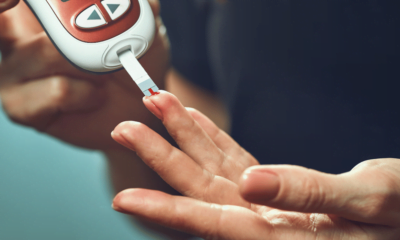A new study has found that demand for medical cannabis in the United States rose during the pandemic, with most people using it for ‘mental stress’.
The findings revealed that Covid-19 case spikes, as well as events such as Black Lives Matter protests and attempted coup on the US Capitol, led to a surge in demand for medical cannabis.
The majority of applications for medical cannabis cards over the past year were for psychological purposes, with more than half of patients saying the main reason for using cannabis was “to feel happy.”

Veriheal, the enterprise behind the largest medical cannabis application platform in the US conducted the study in partnership with graduates from the London School of Economics, University of Southern California and University of Maryland and the CREA (Cultivating Research Education and Advocacy) Group.
It investigated medical cannabis interest and adoption across region, sex and age group, in relation to Covid-19 cases in America as reported by the official Covid-19 CDC data tracker, between January 2020 and March 2021.
Patient data was obtained from surveys on the Veriheal telemedicine platform, which connects prospective patients to state-certified cannabis doctors.
Results show that 55 percent of medical cannabis users primarily seek to feel ‘happy’, 29 percent are looking for ‘relief’, seven percent to relax and five percent to aid sleep.
According to Veriheal, the most common reason for obtaining a medical card has historically been for chronic pain.
Millennials are most inclined to obtain a medical cannabis recommendation during Covid case spikes, according to the findings, followed by Gen X and Gen Z.
Data shows that sign-ups for medical cannabis consultations and appointments both rose in tandem with Covid-19 case spikes in spring 2020 and 2021, Black Lives Matter protests in summer 2020, the Presidential pre-election in late summer and the attempted coup at the US Capitol in January 2021.
“Medical cannabis has traditionally been viewed as an alternative treatment for relieving physical pain and chronic ailments,” said Maha Haq, CEO of CREA and graduate student at University of Maryland’s School of Pharmacy.
“That most people are actually looking to the plant to ease psychological stressors, often related to external social upheaval, is an incredibly important discovery that helps medical professionals better understand evolving consumer relationships with cannabis, and from there, improve the quality of their treatment and related mental healthcare programs.”
Joshua Green, co-founder and CEO of Veriheal, added: “It’s incredible to see Veriheal’s patient database being leveraged for insights on the complexities of medical cannabis use in America.
“This is exactly the kind of application we dreamed of when we initially created our platform.”
The findings were officially presented to the American Chemical Society at their April 2021 national conference.

 Science5 months ago
Science5 months ago
 Industry6 months ago
Industry6 months ago
 News5 months ago
News5 months ago
 News6 months ago
News6 months ago
 Health5 months ago
Health5 months ago
 Health3 months ago
Health3 months ago
 Science5 months ago
Science5 months ago
 Cannabis explained5 months ago
Cannabis explained5 months ago













